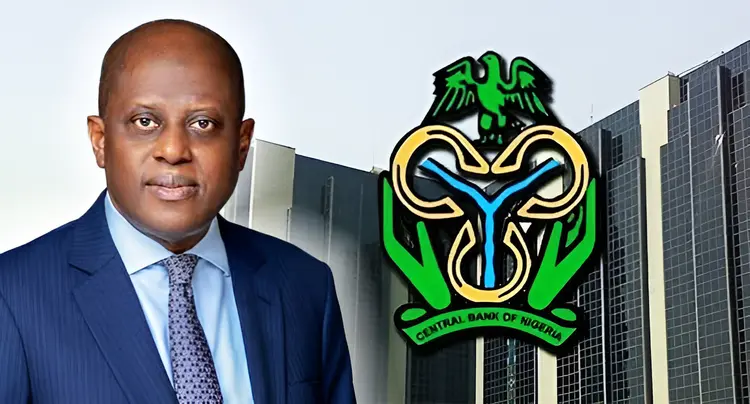The Governor of the Central Bank of Nigeria (CBN), Olayemi Cardoso, has identified inflation as the greatest threat to the economic well-being of Nigerians, pledging that the CBN is committed to reducing inflation to single digits over the medium term.
He said this after the 2025 IMF and World Bank Spring Meetings in Washington, D.C., Cardoso stressed the urgency of bringing inflation under control to stabilise household incomes and improve living standards nationwide.
“Inflation remains the most disruptive force against the economic welfare of Nigerians. Our focus is to bring it down to single digits over the medium term,” Cardoso said.
In March 2025, Nigeria’s headline inflation rate climbed to 24.23%, up from 23.18% in February, according to data from the National Bureau of Statistics (NBS). The surge highlights continued pressures on food prices, essential goods, and the general cost of living, worsening economic challenges for millions.
The NBS attributes the inflationary trend to rising costs across food and non-food categories, underscoring the urgent need for sustainable monetary interventions.
The IMF, meanwhile, projects Nigeria’s inflation rate to average 26.5% in 2025 following the recent rebasing of the Consumer Price Index (CPI). Although this is a moderation from 33.2% in 2024, inflation is expected to rise again to 37.0% by 2026, reflecting Nigeria’s ongoing economic volatility.
CBN gov speaks further
Despite these inflationary challenges, Cardoso pointed to growing investor confidence in Nigeria’s reform agenda. He referenced Nigeria’s recent high-level investment forum at the Nasdaq Market Site in New York, where the country’s reforms were showcased and attracted significant global investor interest, including from the diaspora.
Minister of Finance and Coordinating Minister of the Economy, Wale Edun, echoed Cardoso’s remarks, stressing the government’s commitment to economic growth and job creation. Speaking during the same IMF and World Bank meetings, Edun outlined the Federal Government’s goal of achieving 7% economic growth, supported by critical infrastructure investments such as digital connectivity, data access, and expanded fibre optic networks.
“By stabilising the economy and driving private sector participation, we are creating sustainable jobs for young Nigerians and fostering inclusive growth,” Edun stated.
He also emphasised the administration’s commitment to fiscal discipline, noting that Nigeria’s comprehensive reform agenda—spanning fiscal, monetary, and structural measures—has gained international recognition.
“Despite global uncertainty, Nigeria is poised for resilient, inclusive growth,” Edun added.
Discussing fiscal strategy, Edun highlighted the need for adaptable budgeting, saying, “A budget is a statement of intent; it must be continually recalibrated to reflect on-ground realities and available resources.” This pragmatic approach reflects the government’s effort to adjust to dynamic economic conditions while pursuing stable growth.
As Nigeria navigates persistent economic pressures, the combined efforts of the CBN, the Federal Government, and international partners are focused on curbing inflation, boosting investment, and steering the economy toward sustainable prosperity.
In January 2025, the NBS updated the CPI base year from 2009 to 2024 to better reflect current household spending habits. As a result, inflation figures were recalibrated, with the January rate easing to 24.48% from 34.80% in December 2024. After falling to 23.18% in February, inflation inched back up to 24.23% in March, reflecting ongoing cost-of-living pressures.



